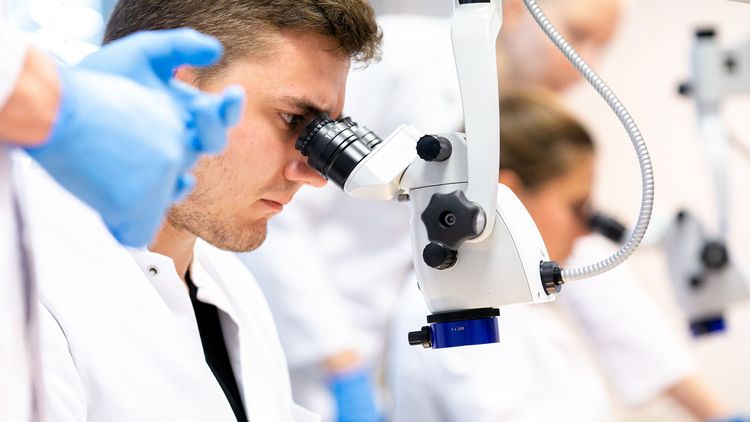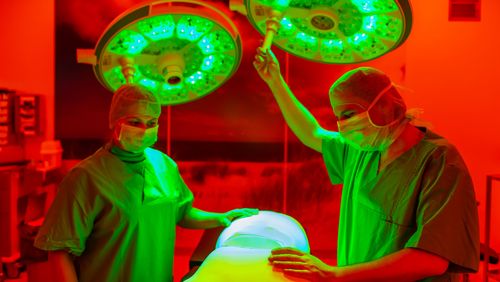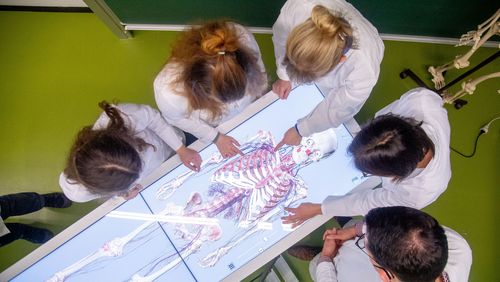The parties in government of Lower Saxony presented the results of the budget meetings on Tuesday. According to that, an additional 40 medical study places will be set up at the University of Oldenburg as of the winter semester 2022/23, bringing the total number to 120. The necessary funding of 10.8 million euros per year will be anchored in the 2022/23 biennial budget. This was preceded by a lengthy struggle to increase the number of study places, which was originally planned for 2020.
"We are pleased to note today's decision by the parties in government. It is both a clear commitment to the school of medicine and health sciences at the University of Oldenburg and a clear commitment to counter the shortage of doctors in a medically undersupplied state with concrete steps," explained University President Prof. Dr Ralph Bruder.
The renewed delay in the expansion of the school of medicine and health sciences had – not for the first time – caused outrage in the region. Many supporters sided with the university. These included, for example, the city of Oldenburg, the Oldenburg Employers' Association, the Oldenburg Chamber of Industry and Commerce, the Chamber of Industry and Commerce for East Frisia and Papenburg, the working group of districts and independent cities in Weser-Ems, the Lower Saxony Rural Women's Association Weser-Ems, the Oldenburg Economic Association - DER KLEINE KREIS, the Lower Saxony Chamber of Agriculture, the Lower Saxony Chamber of Crafts, the Friends and Sponsors of the Universitätsmedizin Nordwest, the Lower Saxony Marburger Bund, the Lower Saxony Association of Statutory Health Insurance Physicians, the Lower Saxony Association of Towns and Municipalities and the Oldenburg Regional Association of the German Red Cross.
"The support we have already experienced in the northwest region since the founding of the school of medicine and health sciences nine years ago is unprecedented. We would like to thank all our supporters – including those in state politics – for their vehement commitment. Without all of them, I am sure, we would not have been able to finance 40 additional study places starting next year," emphasised Prof. Dr Hans Gerd Nothwang, Dean of the School of Medicine and Health Sciences. He also thanked all those involved in the university medicine itself, be it in the faculty, the participating hospitals, teaching hospitals or teaching practices, as well as the partners in Groningen. Despite the not always easy circumstances, they were all committed to educate outstanding physicians – also for this region.
Background:
Among the large area states, Lower Saxony has the lowest number of human medicine study places per inhabitant. The situation in the northwest in particular is alarming: According to a forecast of the Association of Statutory Health Insurance Physicians, around 1,400 general practitioners and more than 1,000 additional specialists will be needed by 2030. In addition, there is a need for more than 3,000 physicians in hospitals and public health departments.




